Iran supports Lebanon’s ceasefire decisions
Humanitarian crisis deepens in Lebanon as Israel targets Hezbollah strongholds
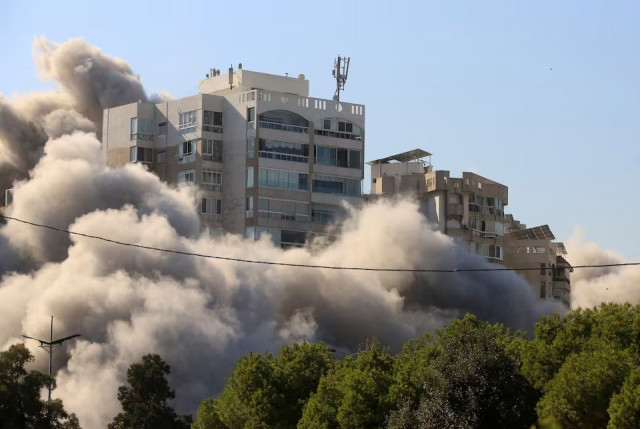
Iran has expressed its support for any decision Lebanon makes regarding ceasefire negotiations with Israel, according to a senior Iranian official on Friday. This indicates Tehran's preference for an end to the ongoing conflict, which has significantly affected its Lebanese ally, Hezbollah.
During his meeting with Larijani in Beirut, Lebanon’s caretaker Prime Minister Najib Mikati emphasised the importance of halting Israeli aggression and implementing Resolution 1701, urging support for Lebanon’s position. Larijani reiterated Iran’s backing for any decision by Lebanon’s government, including adherence to the resolution.
Asked at a news conference whether he had come to Beirut to undermine the US truce plan, Larijani said: "We are not looking to sabotage anything. We are after a solution to the problems."
"We support in all circumstances the Lebanese government. Those who are disrupting are Netanyahu and his people," he added, referring to Israeli Prime Minister Benjamin Netanyahu.
Israel has continued airstrikes on the Hezbollah-controlled southern suburbs of Beirut, destroying buildings for the fourth consecutive day. These attacks have escalated in recent days, coinciding with progress in US-led diplomatic efforts for a ceasefire.
On Friday, Israeli airstrikes levelled five buildings in Beirut's southern suburbs, including one near the Tayouneh junction, a busy area of the city. Video footage showed one building being reduced to rubble, with debris spreading into Horsh Beirut, the city’s main park.
The Israeli military stated it had targeted munitions depots, headquarters, and other Hezbollah facilities, issuing warnings about specific buildings before the strikes.
Two senior Lebanese political figures revealed that the US ambassador to Lebanon had presented a draft ceasefire proposal to Nabih Berri, the parliament speaker endorsed by Hezbollah for negotiations. Berri met Iranian official Ali Larijani on Friday.
Israeli Energy Minister Eli Cohen suggested on Thursday that the prospects for a ceasefire were the most promising since the conflict began.
Reports indicate Netanyahu is eager to secure a ceasefire in Lebanon to achieve an early foreign policy success for US President-elect Donald Trump.
A senior diplomat, speaking anonymously, expressed cautious optimism about a potential ceasefire but noted more time was needed. The outgoing US administration appears focused on brokering a Lebanon ceasefire, even as its efforts to end the Gaza conflict have stalled.
International powers insist a Lebanon ceasefire must adhere to UN Security Council Resolution 1701, which ended the 2006 Hezbollah-Israel war. The resolution requires Hezbollah to relocate its fighters and weapons north of the Litani River, about 20 km from the border. Israel insists on retaining freedom to act if Hezbollah breaches the agreement, a condition Lebanon rejects.
Israel launched its military campaign against Hezbollah in September following nearly a year of cross-border hostilities parallel to the Gaza conflict. The offensive aims to enable the return of displaced Israelis forced to evacuate northern Israel under Hezbollah fire. More than a million Lebanese have fled their homes, creating a severe humanitarian crisis.
Israel claims to have inflicted heavy losses on Hezbollah, including the reported death of its leader, Sayyed Hasasan Nasrallah, along with other commanders. Despite this, Hezbollah continues rocket attacks on Israel and engages Israeli troops in southern Lebanon.
The United Nations Interim Force in Lebanon (UNIFIL) reported that an artillery shell struck its West Sector headquarters in southern Lebanon but did not explode, causing no injuries. Israel promised to investigate after protests from Italy, whose personnel were affected.
Separately, one French UN peacekeeper died in a road accident, and the European Union condemned the killing of 12 paramedics in an Israeli strike near Baalbek.
Lebanon’s health ministry reports that Israeli attacks have killed at least 3,445 people since 7 October, including both civilians and fighters. Israel states that Hezbollah attacks have resulted in about 100 deaths among civilians and soldiers over the past year in northern Israel, the Golan Heights, and southern Lebanon.
The EU strongly criticised attacks on medical workers, calling them a grave violation of international humanitarian law. Josep Borrell, the EU's foreign policy chief, condemned these incidents and reiterated the need to protect healthcare facilities and personnel during conflicts.

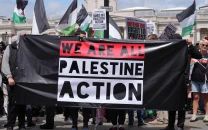
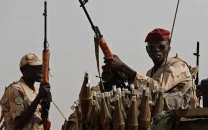
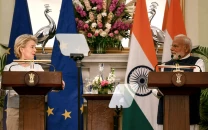
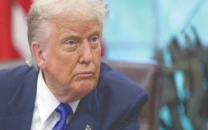
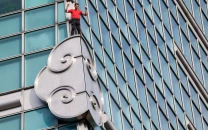













COMMENTS
Comments are moderated and generally will be posted if they are on-topic and not abusive.
For more information, please see our Comments FAQ